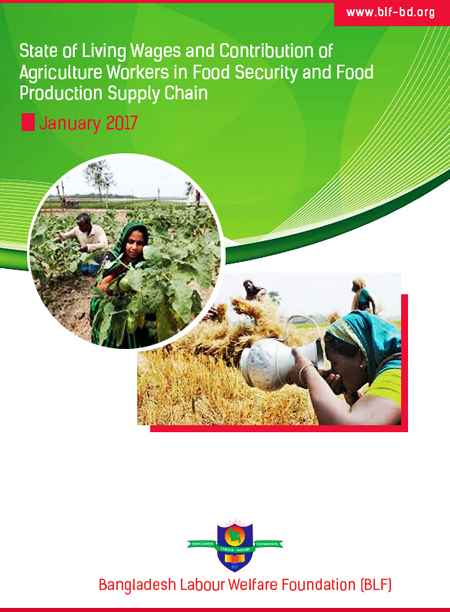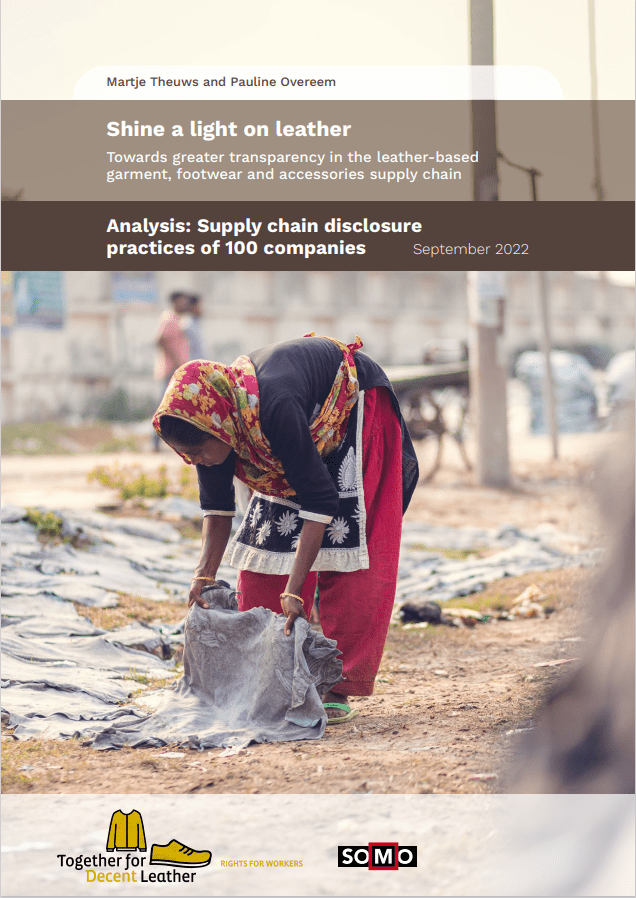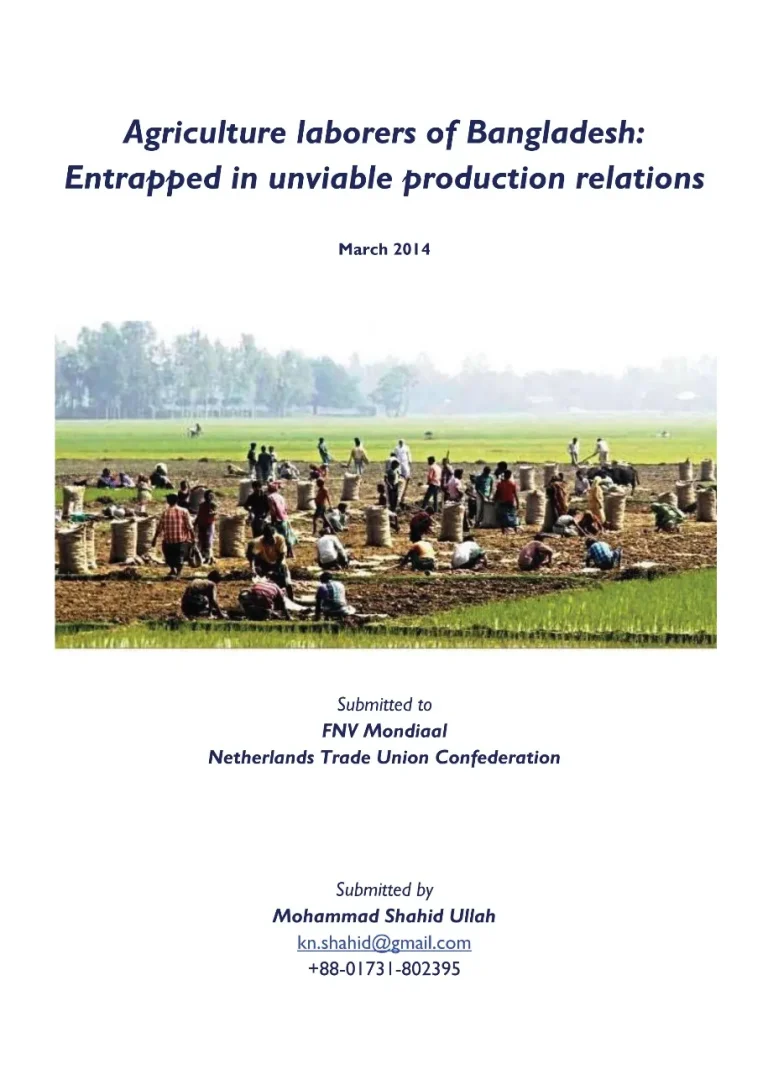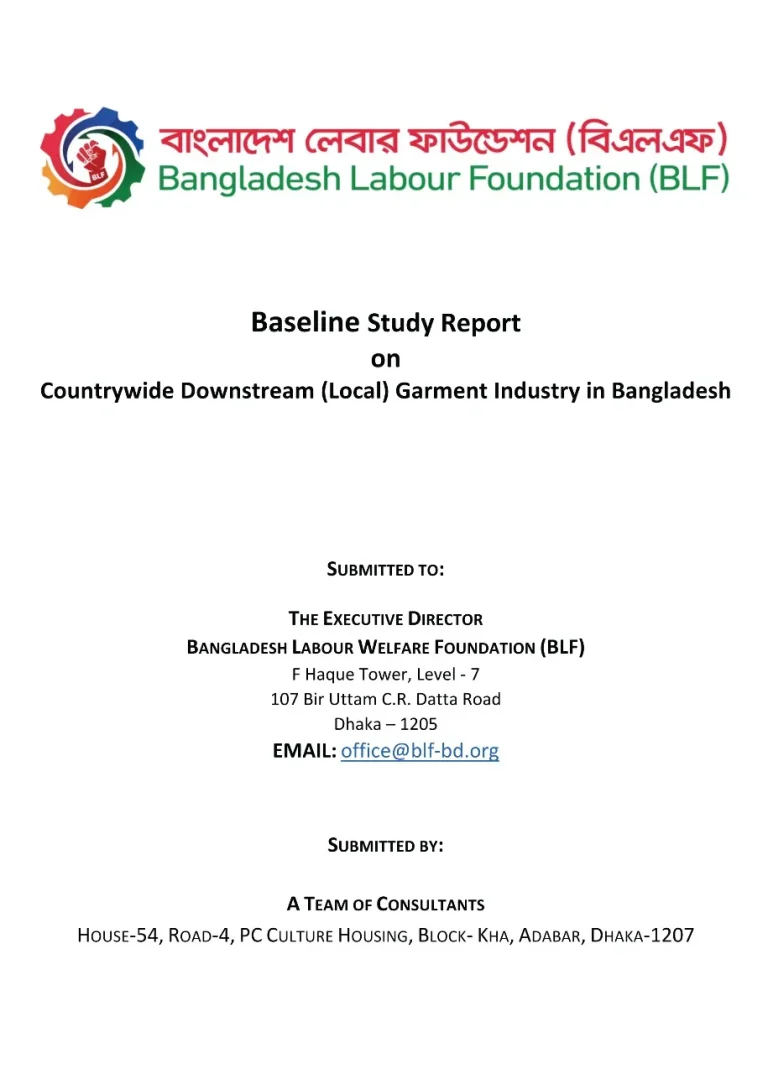Researsh & Study
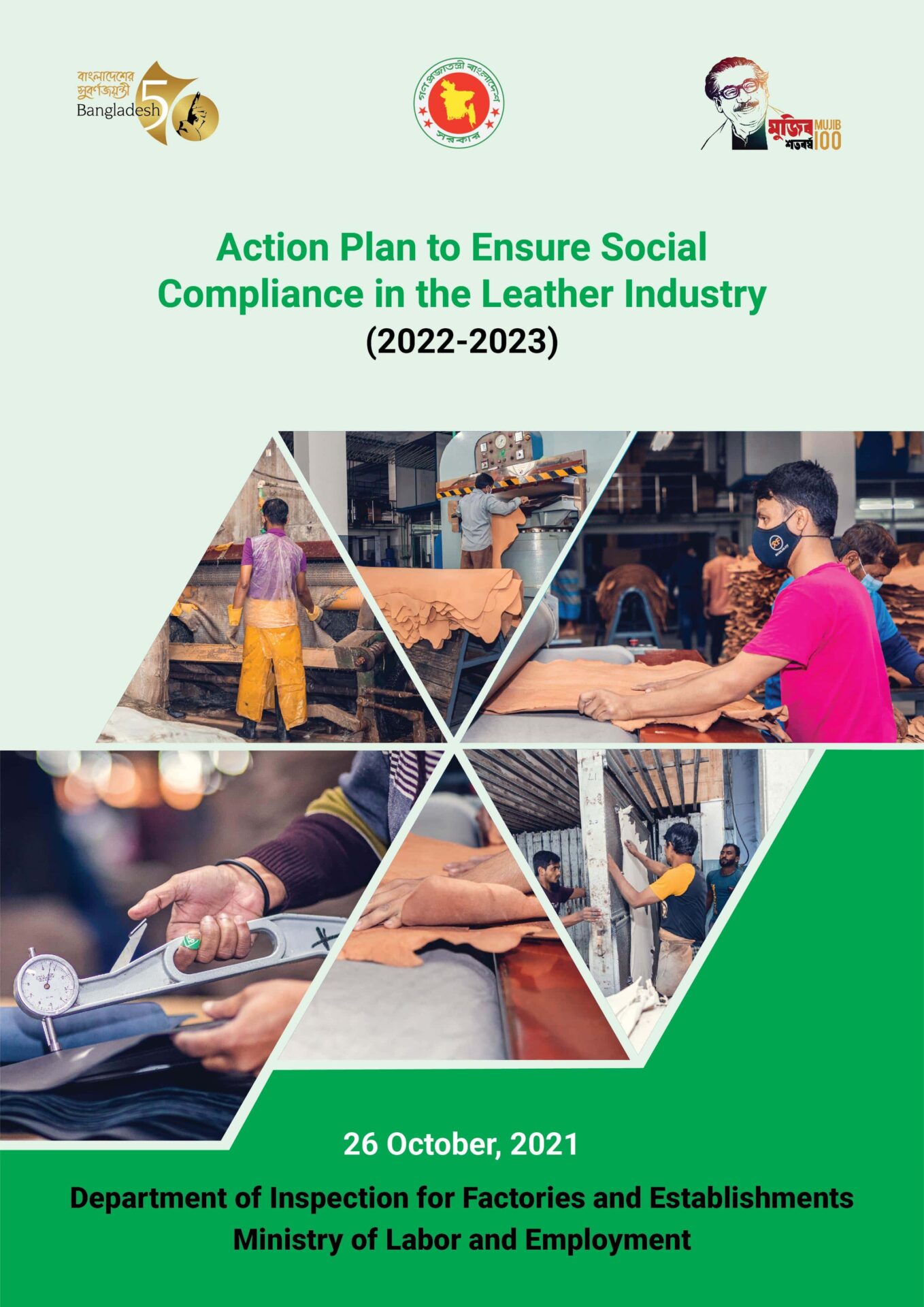
National Plan of Action (NPA) towards achieving Social Compliance in the Tannery industry is a time-bound initiative taken by the government.
Timeline: 2021
The government of Bangladesh relocated the tannery factories from Hazaribagh to a newly developed tannery estate in Savar, a suburb of the Dhaka district. The new site was planned to be equipped with the facilities of a central effluent treatment plant (CETP), a central dumping yard, a water treatment plant, a sludge power generation system (SPGS), a common chrome recovery unit (CCRU), and a sewage treatment plant. Since 2012, the tanneries have slowly begun to relocate to the Savar tannery estate.
With the technical support of Bangladesh Labour Foundation (BLF) and lead by Department of Inspection for Factories and Establishment (DIFE), a National Plan of Action (NPA) has been prepared with an aim to achieve the social compliance in the tannery industry in Bangladesh which is now approved by the Ministry of Labour and Employment. The NPA has also included time bound to ensure the social compliance in the Tanneries within 2023.
Leather is one of the oldest industries in Bangladesh. The leather sector of Bangladesh, which constitutes about 3 percent of the world’s market for leather and leather goods, is the country’s second-largest source of export earnings, after readymade garments.
After a long time, this sector finally gives some good news. According to the Export Promotion Bureau (EPB), leather, leather goods and footwear exports from Bangladesh reached a 10-year-high of $1,245 million in FY2021-22. In 2017, Bangladesh Government declares Leather, leather goods, and footwear as Product of the Year in Bangladesh.
At present, a total of 137 factories are in operation in the Savar tannery estate. Despite the high promise of a planned relocation project, the tannery estate in Savar has yet to achieve the major relocation objectives, e.g. environmental compliance, due to, among others, the CETP – the centerpiece of the whole relocation endeavor – proving unsuitable for the tanning factories.
In terms of labor standards and workplace safety, the leather tanning industry is no exception from the country’s other labor-intensive industries, where sweatshop conditions are commonplace. Even after the relocation that promised better lives and work conditions for the tannery workers, the industry is still struggling to ensure the minimum wage, basic labor rights, and occupational safety and health. Thus, the leather tanning industry in Bangladesh, failing to successfully deal with the challenges of weak environmental compliance on the one hand and poor labor standards and occupational safety on the other, has become subject to underperformance.

